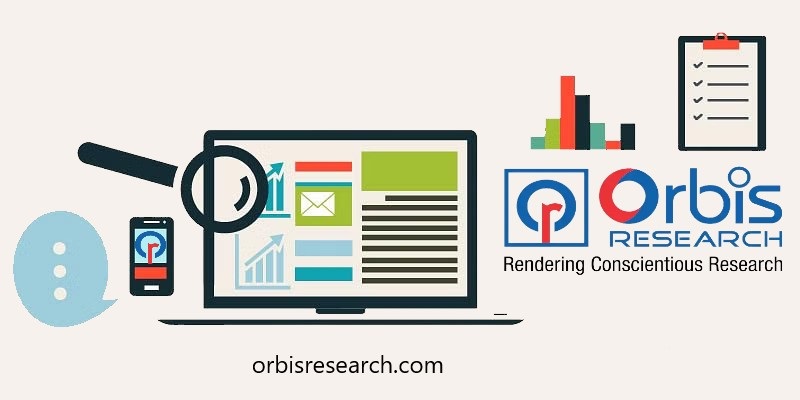FORT WORTH, TX / ACCESSWIRE / July 13, 2024 / Pay-per-click (PPC) advertising has become a vital tool for healthcare providers looking to increase their online presence and attract more patients. In the ever-competitive field of healthcare, PPC ads can help you reach those actively searching for medical services and information. For healthcare administrators, leveraging these targeted ads means potentially higher conversions, especially when the campaigns are well-optimized. Crafting a PPC strategy for healthcare involves selecting the right keywords that align with the services offered, ensuring the ads appear to the right audience at the right time. The aim is to catch the attention of users who are looking for specific medical information or services, thereby increasing the chances of engagement and appointment bookings. It is crucial to stay updated with search engine algorithms and industry trends to maintain the effectiveness of the ads.
Image Credit: AndreyPopov, Doctor Marketing, MD™
Managing PPC campaigns requires ongoing analysis and adjustments to ensure they meet the set objectives. Additionally, adhering to ethical standards and compliance regulations is paramount in healthcare advertising to build trust and maintain credibility. PPC campaigns, if properly managed, can serve as a powerful component of a broader digital marketing strategy, positioning healthcare providers like Doctor Marketing, MD, as leaders in the field. Healthcare pay-per-click (PPC) advertising offers healthcare providers a way to attract new patients online using targeted ads. It involves paying for each click on their ads, which appear during relevant searches on platforms like Google.
What Is PPC in Healthcare?
PPC in healthcare refers to a model of internet marketing where healthcare providers pay a fee each time their ad is clicked. These ads are shown to potential patients using search engines, social media, and other websites. Healthcare PPC targets people who are actively searching for health services, making it an effective way to increase visibility and reach the right audience.
By using PPC, healthcare providers can ensure their ads appear when specific keywords related to their services are searched. This method helps in getting targeted traffic, as ads are shown to users based on their search intentions. Ultimately, PPC in healthcare is about buying visits to a website instead of aiming for visits through organic search alone.
The Importance of PPC for Healthcare Providers
PPC is vital for healthcare providers looking to attract new patients in the digital age. The high competition and vast number of online health information seekers make it necessary to stand out. Nearly 90% of health-related searches happen online, and PPC provides a direct route to reach these potential patients.
The ability to target specific demographics, such as geographic location, age, and interests, helps healthcare providers to reach the right people at the right time. This can lead to higher conversion rates, as ads are shown to users who are more likely to be interested in the services offered. For healthcare providers, investing in PPC means staying competitive and ensuring that they are visible to those seeking their services.
Google Ads and Healthcare PPC Basics
Google Ads is a popular platform for healthcare PPC. It allows healthcare providers to create ads that appear in search results when users look for relevant healthcare services. These ads can be customized with ad extensions, providing more information like contact details, which can improve conversion rates. Creating custom landing pages that match the ad content is another essential strategy in healthcare PPC. This ensures that when potential patients click on an ad, they are directed to a page specifically designed to meet their needs, increasing the likelihood of conversion.
Crafting Your PPC Strategy
A successful healthcare PPC strategy involves setting clear business objectives, targeting the right audience through keyword research, creating compelling ad copy, and optimizing landing pages for conversions. Each aspect is crucial for attracting new patients and enhancing your online presence. First, define what you want to achieve with your PPC campaigns. Are you aiming to increase website traffic, get more patient appointments, or promote a new service? Specific objectives guide the rest of your strategy and help measure success.
Keyword Research for Targeting The Right Audience
Selecting the right keywords is vital to ensure your ads reach the intended audience. Keywords should be relevant to healthcare services and what potential patients might search for. Utilize tools like Google’s Keyword Planner to identify effective keywords. Pay attention to search volume and competition. Long-tail keywords often work well because they’re specific and attract more qualified traffic. For instance, instead of just “doctor,” use phrases like “pediatric doctor in New York” to target specific needs.
Creating Compelling Ad Copy
Your ad copy must be engaging and relevant to the audience’s needs. It should speak directly to their concerns and offer solutions your healthcare services provide. Use action words and highlight unique selling points. For example, “Get same-day appointments for urgent care” can attract those looking for immediate attention. Including a call-to-action (CTA) like “Book Now” or “Learn More” encourages users to click. Also, regularly test different versions of your ad copy to find the most effective one.
Optimizing Landing Pages for Conversion
An optimized landing page is key to transforming ad clicks into conversions. Ensure that the landing page is relevant to the ad copy and provides a seamless user experience. The landing page should be clean, easy to navigate, and mobile-friendly, as many users will access it from their phones. Include a clear CTA, such as “Schedule an Appointment Today,” and make it easy for visitors to take action. Testimonials and patient reviews can add credibility and encourage conversions.
Managing PPC Campaigns
Healthcare PPC campaigns can drive targeted traffic to healthcare providers. Successfully managing these campaigns involves careful budgeting, precise geo-targeting, continuous testing, and meticulous tracking. Setting a clear budget and effective bidding are critical in healthcare PPC. Start by determining how much you can allocate to your campaigns. Use average industry cost-per-click (CPC) rates as a reference. Healthcare providers should prioritize high-value keywords that directly relate to the services provided. Adjust bids based on factors like competition and ad performance. Use automated bidding tools to help maximize return on investment (ROI). These tools can help balance the budget against the potential pay-off from clicks and conversions.
Using Geo-Targeting and Ad Extensions
Geo-targeting is essential in healthcare PPC. It ensures that ads reach users in specific locations where the healthcare provider operates. Setting geo-targets down to city or even zip code level can create more relevant and effective advertising. Ad extensions enhance the visibility and effectiveness of PPC ads. They include additional information like phone numbers, addresses, or extra links. In healthcare, adding location extensions can help potential patients find the nearest clinic quickly.
Tracking Performance and ROI
Tracking is crucial to measure the success of healthcare PPC campaigns. Use tools like Google Analytics to monitor metrics such as click-through rates (CTR), conversion rates, and cost-per-conversion. Tracking ROI is also vital. Calculate the return by comparing the revenue generated from the PPC campaign against the total campaign costs. This helps in understanding the actual financial benefit derived from PPC efforts, guiding future budget adjustments and strategy refinements.
PPC Advertising Alternatives (No Ad Costs)
For healthcare professionals looking to avoid the costs associated with pay-per-click (PPC) advertising, there are several viable alternatives. These include strategies such as search engine optimization (SEO), harnessing Google SEO traffic, generating organic traffic, and engaging in content marketing. Below, each strategy is broken down with specific focus on how they can benefit healthcare marketing.
SEO, or search engine optimization, is essential for healthcare providers who want to increase visibility without paying for ads. SEO involves optimizing your website so that it ranks higher in search engine results. This means using keywords, improving site speed, and enhancing user experience. For healthcare, using keywords related to treatments, conditions, and local services can drive more traffic. Doctor Marketing, MD can assist by analyzing current SEO strategies and suggesting improvements specific to healthcare.
Google SEO Traffic
Google is the most popular search engine, and optimizing for it can bring a significant amount of free traffic. Google SEO traffic focuses on meeting Google’s ranking algorithms, such as high-quality content, relevant keywords, and strong backlinks. For healthcare websites, this means publishing articles about medical conditions, patient testimonials, and healthcare tips. Regularly updating the site with informative content helps maintain a high ranking over time.
Organic Traffic
Organic traffic refers to visitors who find your site through unpaid search results. It’s often driven by effective SEO and content strategies. In healthcare, organic traffic can be increased by having a well-structured website that is easy to navigate, mobile-friendly, and packed with valuable information. Engaging with patients through blogs, FAQs, and educational resources can attract and retain visitors naturally. Monitoring analytics helps to understand which content performs best.
Content Marketing
Content marketing is a strategic approach focused on creating and sharing valuable content to attract and retain users. For healthcare marketers, this could mean writing blog posts about new treatments, creating videos explaining medical procedures, or sharing infographics on patient care. Content should be educational and engaging to build trust with the audience. Collaboration with healthcare professionals to produce authoritative content boosts credibility.
These PPC alternatives can effectively boost a healthcare provider’s online presence without incurring the high costs of paid advertising.

Doctor Marketing, MD™ is led by Marty Stewart, Chief Marketing Officer (CMO) and Chief Strategy Officer (CSO). Image Credit: Doctor Marketing, MD™
About Doctor Marketing, MD™
Doctor Marketing, MD™ is one of the best healthcare marketing firms, specializing in SEO marketing for doctors, content creation, content distribution, and strategy. The firm works with Top Doctors and Surgeons, Healthcare Companies, Medical Professionals, Private Practices, Medical Groups and Clinics, Hospitals, Executives, and Leaders in the Healthcare Industry and specialty Medical sectors.
Doctor Marketing, MD™ has built a world-class content writing team of award-winning writers, SEOs, copywriters, wordsmiths, and ghostwriters. They’ve perfected a proprietary content assembly line process, and further specialize in large-scale content production through well-crafted blog posts, articles, and medical content pieces that attract new patients.
Doctor Marketing, MD™ Helps Medical Professionals and Healthcare Providers Attract New Patients and Increase Patient Acquisition: Better, Faster and with Less Effort.
Need to Hire a Search Engine Optimization Manager For Strategic Marketing Guidance For Your Doctor’s Office, Healthcare, Medical, Clinic, Medspa, Plastic or Cosmetic Surgical Practice?
CONTACT:
Doctor Marketing, MD™
Anna Goldstein
Director of Media Relations
877-463-9777 ext. 3
[email protected]
https://DoctorMarketingMD.com/
Connect with Doctor Marketing, MD™ on Social Media:
Linkedin, Instagram, Twitter, Facebook, and Youtube
Schedule a Deep-Dive Marketing Analysis for Your Medical Practice, Visit:
https://DoctorMarketingMD.com/contact/
SOURCE: Doctor Marketing, MD™ (DRMMD)
https://www.accesswire.com/888546/healthcare-pay-per-click-ppc-minimize-ad-spending-costs




